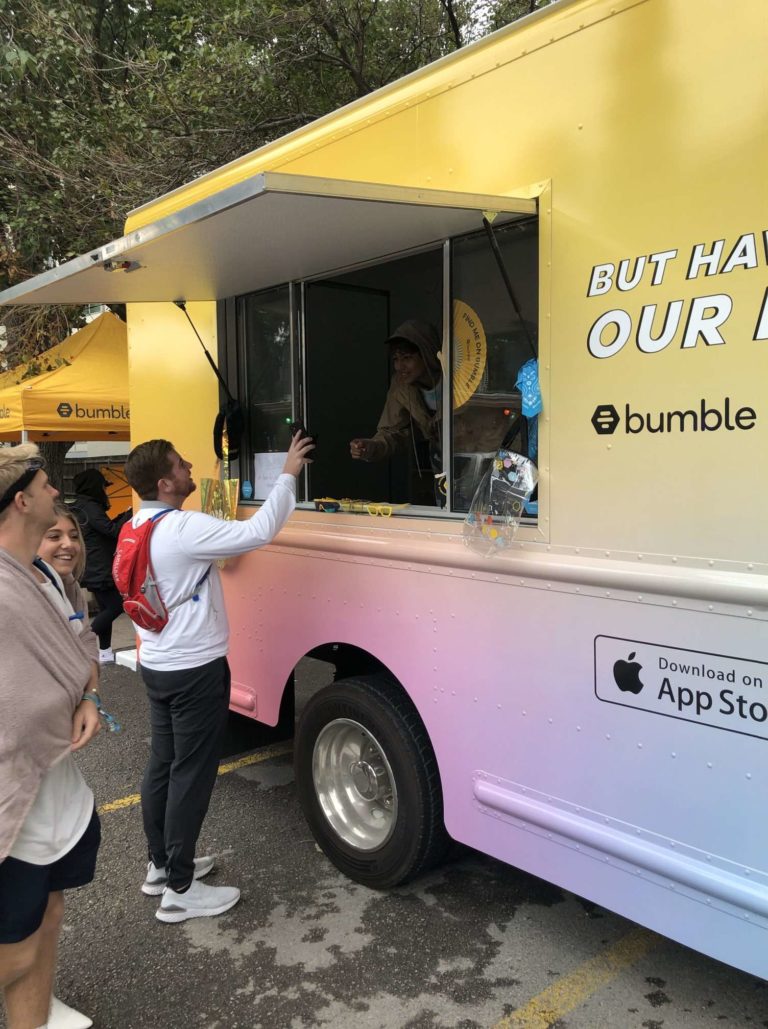03.22.23
By Lisa Major

Startup brands know the power of word of mouth, so they often rely on social media and influencers to market their new products. But these campaigns can become expensive – and sometimes unwieldy – quickly. And the digital platforms used to deliver the message to audiences are cluttered and crowded spaces.
Many startup brands presume experiential marketing is for larger, established brands with big budgets to execute wildly creative ideas. But this isn’t true. Instead, new brands can leverage experiential marketing in any shape, size, or form to connect to an audience. Below, we explore the benefits of experiential marketing for startup brands.

Consider your target audience – what’s more likely to get their attention? A social media ad they can scroll by or an in-person, interactive experience? The great thing about using Experiential Marketing to introduce a brand is that it is an active and direct connection. And the brand ambassadors who deliver the message are trained to make a friendly first impression on your behalf.
Great first impressions are more memorable, right? So, when a startup brand’s first and only goal is brand awareness and recall, a consumer’s direct experience with a brand carries more resonance than a passive online interaction. However, the goal isn’t to develop a creative, unforgettable idea. Just make sure the brand experience you create adds real value to your audience, so the effort isn’t solely for the benefit of brand metrics.
The number one benefit of experiential marketing is the personal connection it creates between a brand and its consumer. Experiential marketing instantly humanizes a brand, dispelling any notion that a brand is a corporate, abstract entity. For startup brands, the benefit of creating personal relationships means customers have an engaged interest in the brand’s success, having been some of the early supporters and (hopefully) brand advocates.
Experiential marketing can be a treasure trove of content for startup brands. If planned and executed with amplification in mind, an in-person event can provide new photo and video content, social media sharing and increased reach, and customer testimonials or reviews. An amplification strategy is especially beneficial to startups investing in only one or two markets at launch.
Yes, consumer research and focus groups are critical for startup brands before launch. But, experiential marketing gives brands opportunities to get authentic feedback from a wide selection of potential customers who interact with the event. Even if some participants aren’t within the target audience, they may be able to shed light on some blind spots that didn’t present in the initial research. Having brand ambassadors trained to engage customers and ask for feedback is crucial to successful experiential marketing efforts.
Startups that incorporate experiential marketing into their initial launch strategy can expect positive brand awareness, recall, and consideration. It accelerates lead generation and conversion as well. In an overly digital world, consumers appreciate a personal invitation to engage with brands to experience the value and benefits firsthand – an experience invaluable to startups.
ATN Event Staffing delivers top-tier talent to represent your brand directly in front of consumers. Our expertise makes the hiring process of an experiential marketing team a seamless integration for marketing events, activations, and promotions. Contact us to learn more about our staffing solutions and how we can help you get your startup brand noticed.